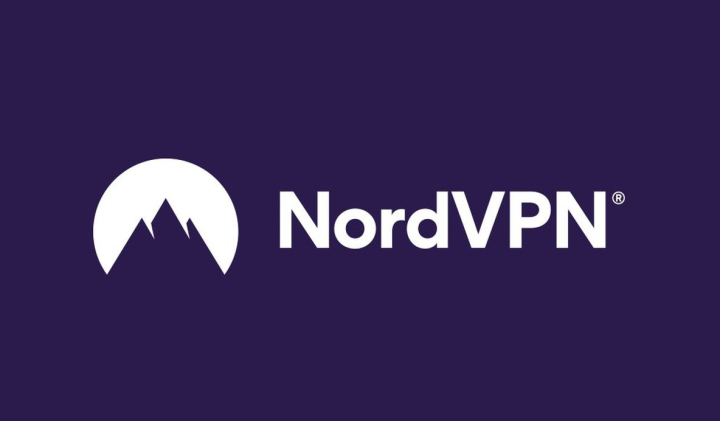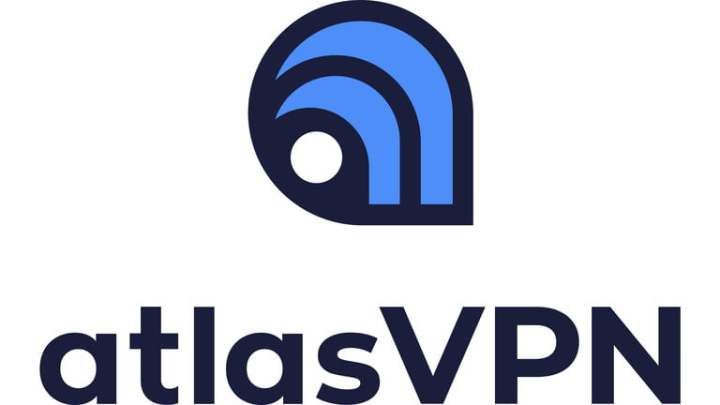Top 5 VPN 2023
1. NordVPN

- Country of registration: Panama
- Cost: $13 per month; $60 for the first year; $100 for the first two years
- Clients supported: Windows, MacOS, Linux, iOS, Android, Android TV, VPN routers
- Number of servers & locations: 5,200+ across 60 countries
- Number of simultaneous connections: Up to six
- Special features: Split tunneling
NordVPN isn’t free, but with three different encryption protocols (IKEv2/IPsec, OpenVPN, and NordLynx), it’s easy to see that this provider values your privacy. The company has also worked hard to build up its server network to include more than 5,200 servers in 60 countries around the world.
One stand-out feature that makes NordVPN a strong contender for the best VPN service out there is split tunneling. If you’re not familiar, split tunneling is the ability to whitelist some activities (such as gaming or streaming) to bypass the VPN and use the regular “clearnet” for better performance.
2. ExpressVPN

- Country of registration: British Virgin Islands
- Cost: $13 per month; $60 for six months; $100 per year
- Number of servers & locations: 3,000+; 160 locations across 94 countries
- Clients supported: Windows, MacOS, Linux, iOS, Android, Kindle Fire, Chrome OS, smart TVs, gaming consoles, VPN routers
- Number of simultaneous connections: Up to five
- Special features: Split tunneling
ExpressVPN’s “#1 Trusted Leader in VPN” claim may be a bit difficult to prove, but the service offers a compelling list of features nonetheless. It also constantly tries to make regular improvements in speed and simultaneous streaming capabilities, and with support for all major platforms (Windows, MacOS, Android, etc.), you won’t need to worry about compatibility.
3. Surfshark

Surfshark - Country of registration: British Virgin Islands
- Cost: $13 per month; $48 for the first year; $60 for the first two years
- Number of servers & locations: 3,200 across 65 countries
- Clients supported: Windows, MacOS, Linux, iOS, Android, smart TVs, VPN routers
- Number of simultaneous connections: Unlimited
- Special features: Double VPN hop, 7-day free trial (for Android, iOS, MacOS)
It may not quite rank as the best VPN, but when it comes to price, Surfshark is hard to beat and is a great option for those looking to protect their privacy while minimizing costs. Surfshark is available for as cheaply as $60 for the two-year plan, and to sweeten the deal even more, that includes an unlimited number of simultaneous connections.
4. IPVanish

- Country of registration: United States
- Cost: $12 per month, $48 for the first year, $70 for the first two years
- Number of servers & locations: 2,000+; 75+ locations across 50 countries
- Clients supported: Windows, MacOS, Linux, iOS, Android, Chrome OS, Fire TV
- Number of simultaneous connections: Unlimited
- Special features: Independently audited no-logs policy
IPVanish offers all the key features you could need from a VPN at a great price. With regular sales being part of the IPVanish experience, you can commit for a year at a very low cost, enjoying the protection that comes from a choice of more than 2,000 VPN servers across more than 75 different locations.
5. AtlasVPN

- Country of registration: United States
- Cost: $11 per month; $49 for the first year; $72 for the first three years (plus three free months)
- Number of servers & locations: 750+, 37+ locations across 30+ countries
- Clients supported: Windows, MacOS, iOS, Android, Android TV, Fire TV
- Number of simultaneous connections: Unlimited
- Special features: Unlimited simultaneous connections for full-coverage protection.
AtlasVPN is a newcomer to the VPN industry, but it comes packed with secure and steadfast features that challenge even the big players. What’s amazing about this VPN is that it has a comprehensive free data plan that is one of the best on the market, and if you decide to upgrade to the faster, premium servers, then it only costs $49 per year or $72 for three years. While the server network may be considerably smaller than its competitors, it is a newer service with much more room to expand.
Which is the most secure VPN?
All of the VPNs on our list have high ratings for security, but there are a few specific things you should look for if your safety threshold is a bit higher than that of an average user. We suggest paying attention to:
- No-log policies: This is the VPN promising that they don’t log locations or activities for any user. Certain VPNs offer third-party verified audits, while others provide detailed information on their code so users can see for themselves.
- Location: A variety of countries have specific regulations requiring data retention so they can investigate illegal activities, etc. Certain VPNs claim they avoid these restrictions by having their headquarters in places like the Bahamas or Panama. This is a somewhat murky subject, but worth watching for.
- Kill switches: When a VPN service suddenly drops or has an outage, a kill switch will automatically keep you from connecting to the internet, ensuring that your location or data are not accidentally exposed.
- Double encryption: Some of the best VPN services offer a double encryption mode that will encrypt data twice instead of just once. It may not be necessary, but if you are truly worried about hacking attempts it could be useful.
- A choice of security protocols: For those who really want to dig into privacy options, the ability to switch between security protocols like OpenVPN and IKEv2 can be useful.
Due to the fact that it ticks all of these boxes, and thanks to additional advanced features like split tunneling, NordVPN takes the cake as the most secure VPN you can subscribe to right now.
Should you use a VPN in 2023?
In the most basic terms, a virtual private network allows you to safely send information when using public networks via a group of networked computers and faraway servers. And while VPNs are effective at what they do, you should be aware of their limitations.
For general data encryption and protection when online, they are an excellent choice. They can help prevent data throttling by hiding you from your ISP (internet service provider). They can get around regional restrictions or price changes by allowing users to switch servers at will. Additional features can restrict web access, help detect malicious sites, and other services.
On the other hand, even the best VPN is not a security panacea. They can be detected and banned by governments, for example, and low-quality versions can log and even sell your data. Services can also block access to content when a VPN is used, which is why trying to get around something like Netflix’s regional restrictions can be hit or miss.
All that said, so long as you understand their limitations and adjust your expectations accordingly, we definitely think that you should use a VPN in 2023 if you’re concerned with online privacy and security.
Should you use a free VPN or buy one?
Signing up for free VPNs, while tempting at first glance, can be a risky business. Know that all “free” services are making money off of you somehow (the old axiom that states “if something’s free, you’re the product” comes to mind), whether it be from advertisements or something less innocuous, such as selling user activity data. The best VPNs typically promise no activity or user logs and many boast third-party audits of this claim but do have fees.
We’ve narrowed down the very best VPN service options above, but thanks to frequent deals and discounts, you’ll find that even the best services don’t cost that much. The small savings you get by using a free VPN really aren’t worth the trade-off in performance and protection.
Is using a VPN illegal?
Virtual private networks themselves are perfectly legal in most jurisdictions, including the United States, and there’s nothing illegal about using one for anything you’d do on the internet that’s not an unlawful activity. At its most basic, a VPN is simply a network of privately operated servers that you connect to and through which your internet traffic is routed. That said, VPNs can still put the user in a legal gray area under certain circumstances. This largely comes down to geography.
Certain countries and jurisdictions, particularly those where the state engages in censorship, have laws against circumventing these government restrictions, up to and including blanket bans on virtual private networks. China, Cuba, Iraq, Egypt, Turkey, and Russia are a few countries known for restricting or completely prohibiting VPN usage. If you’re concerned about this, make sure to read up on your national and local laws before you start shopping for a VPN.
It also should go without saying that a VPN doesn’t cast a magic spell that makes illegal activities legal. Any action that is unlawful when conducted online without a VPN is still unlawful when using a VPN. This includes piracy. Peer-to-peer file-sharing protocols such as BitTorrent have many legitimate uses (open-source software distribution, for example), but illegally sharing copyrighted materials isn’t one of them. Bear this in mind if you’re specifically looking for a good VPN for torrenting.
Also know that virtual private network providers are beholden to the laws of whichever country they’re registered in and may have to hand over information to law enforcement during the course of an investigation. Virtually all VPN operators boast a “no logs” policy, meaning that they do not keep a record of user activity. In this case, there would be nothing to hand over, although there’s no way to be fully certain that a VPN provider’s “no log” policy is being followed to the letter.
Some VPNs have their no-log practices audited by independent third parties on a regular (typically annual) basis, but this still doesn’t offer 100% certainty. The only way to be sure that you stay out of trouble while using a VPN is to simply obey the law. A virtual private network is for protecting your privacy and keeping your sensitive personal information secure — not for conducting illegal activities outside of the purview of law enforcement.
Finally, note that while not illegal, using a VPN does violate the terms of service of certain websites and apps (Netflix is one notable example). While breaking a company’s terms of service is not a crime, it can still result in that site or app restricting your access to its services and even shutting down your account. Virtual private networks often advertise that they are streaming- and gaming-friendly, but in our own tests we have frequently found this to be hit-and-miss. Be sure to do your research if you plan to use your VPN activities like these.



0 Comments